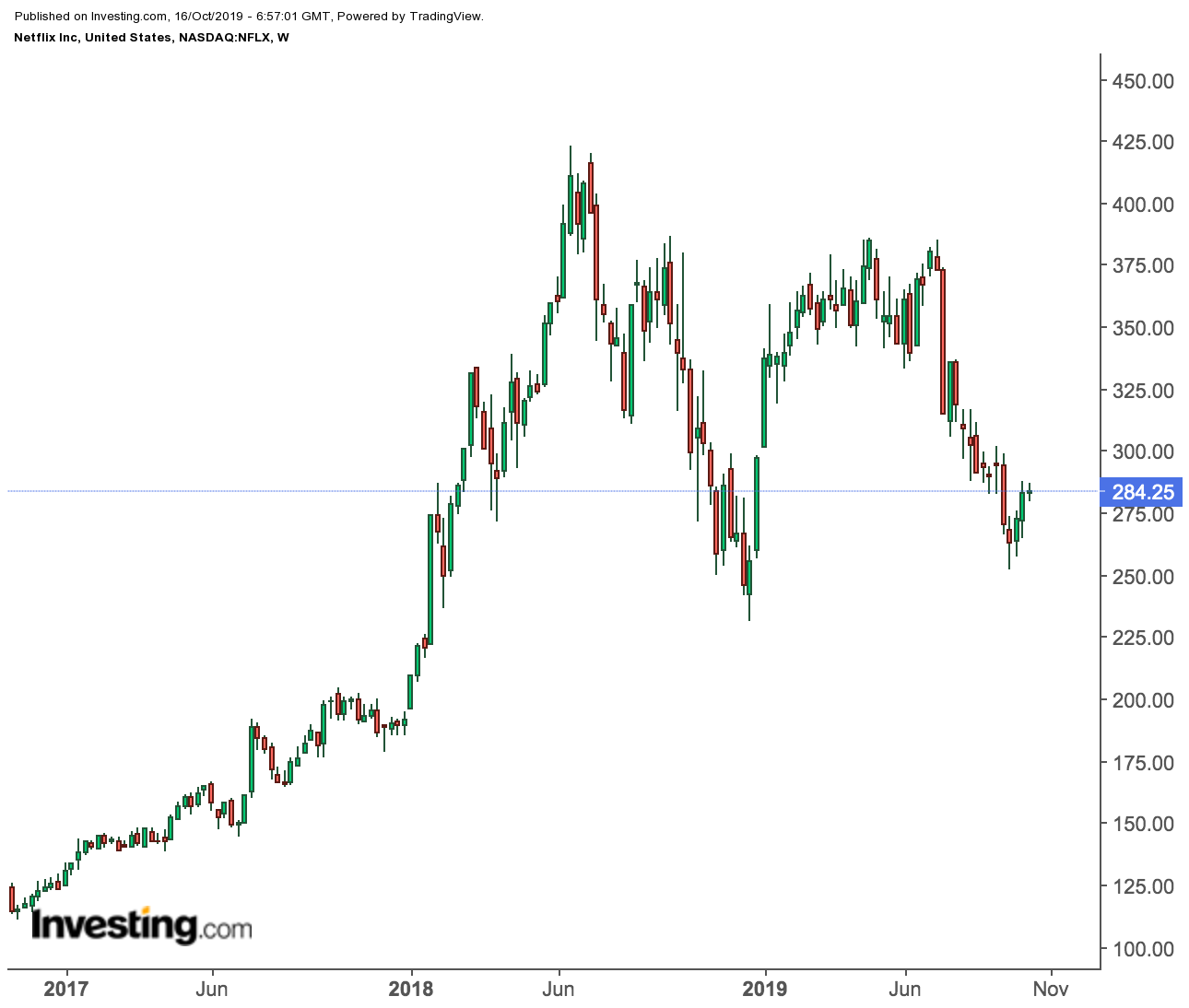* Reports 3Q 2019 results on Wednesday, Oct. 16, after the market close
* Revenue Expectation: $5.25 billion
* EPS Expectation: $1.03
When the streaming giant Netflix Inc (NASDAQ:NFLX) reports its 3Q earnings later today, it must show that the plunge in the number of paid subscribers in the last quarter was just an aberration and not the new norm.
Investors severely punished Netflix for its second quarter mis, sending its shares down more than 25% in the next three months — the worst performance among the largest tech stocks during that period. the stock closed at $284.25 yesterday, sharply down from the record high of $423.21 it reached in June, 2018.
What hit the stock most was consumers' unfavorable response to Netflix’s price hikes: the company mostly lost subscribers in those regions where it increased monthly prices for its streaming packages.
For many, that showed a limit to the pricing power that Netflix could use to bridge the gap between its revenues and spending. It also meant the path to profitability for the company may not be as smooth as many analysts had priced in, especially at a time when it’s bleeding cash and borrowing heavily to produce new content.
Competition Is Intensifying
The shock on 2Q earnings also forced investors to take the upcoming competition more seriously. The Walt Disney Company (NYSE:DIS) announced in August that it’s offering a new bundle of streaming services at a surprisingly low $12.99 a month, with a package that includes family programming, live sports and a deep library of television shows. Disney is matching Netflix’s standard plan and marketing the service at $3 below its premium version.
Apple Inc (NASDAQ:AAPL), another deep-pocketed contender in the streaming business, plans to roll out the Apple TV+ movie and TV subscription service by November, potentially priced as low as $9.99 a month, according to Bloomberg news. AT&T Inc (NYSE:T) and Comcast Corp's (NASDAQ:CMCSA) NBC Universal also plan to offer their streaming versions — all aiming to end Netflix's monopoly.
The intensifying competition definitely makes Netflix a risky bet in the short-run, but that doesn’t mean the company has completely lost its fan base. Netflix has a strong record of exceeding expectations. For 3Q, it’s projecting the addition of 7 million new paid subscribers compared with 2.7 million it added in the previous period.
If the company is able to add more customers than projected and continues with the release of new content that could keep viewers stick to its app, we can expect some recovery in its stock.
Bottom Line
The upward trajectory of Netflix shares has largely been unhindered in the last few years. The company delivered on average 27% per year growth in paid subscribers during the past five years.
But with the upcoming competition, rising content costs, and saturation in the domestic market, the path forward won’t be that easy.
In our view, investors will continue to shy away from Netflix until they see a clear sign that the company is holding up well and can defend its turf. A revival in subscription growth in the second-half will be an important confidence-building development.
